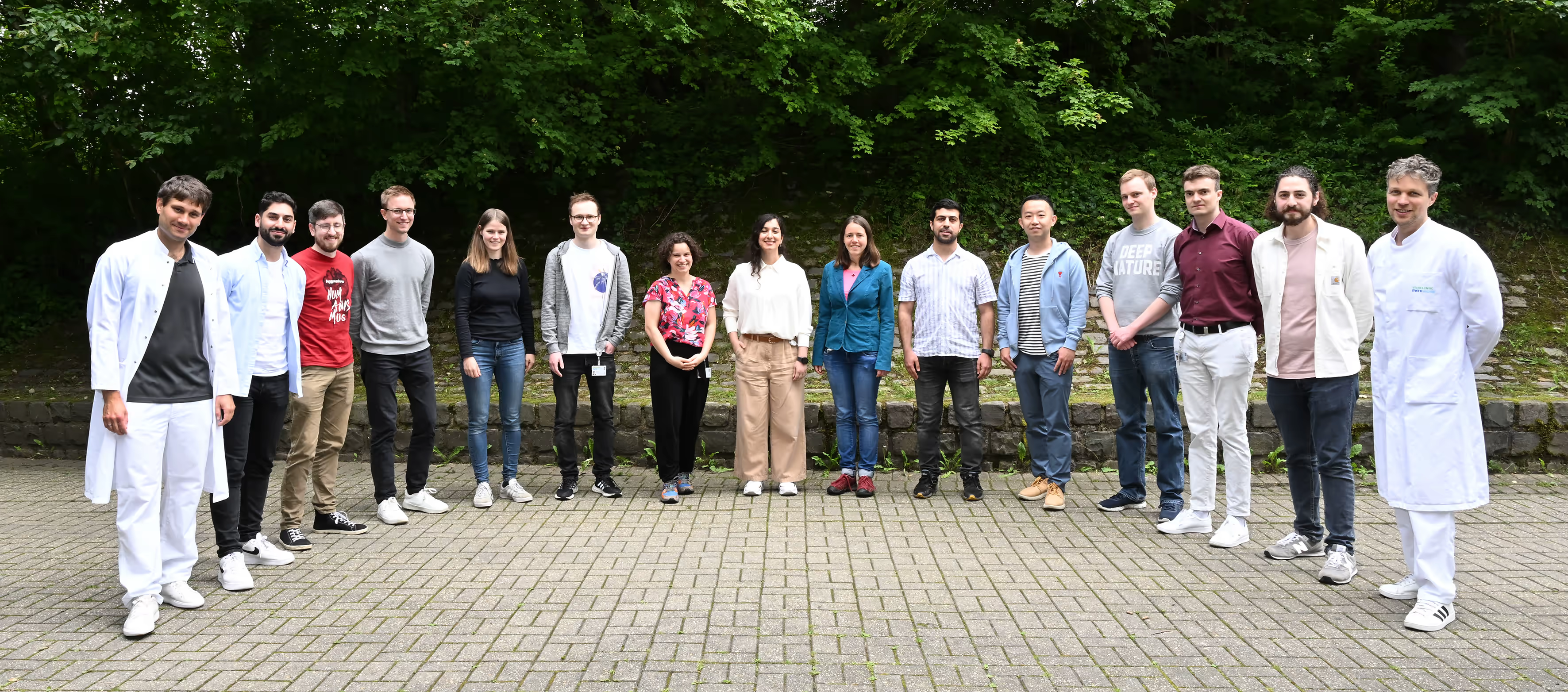
Meet the Team
Lab Leadership
Daniel Truhn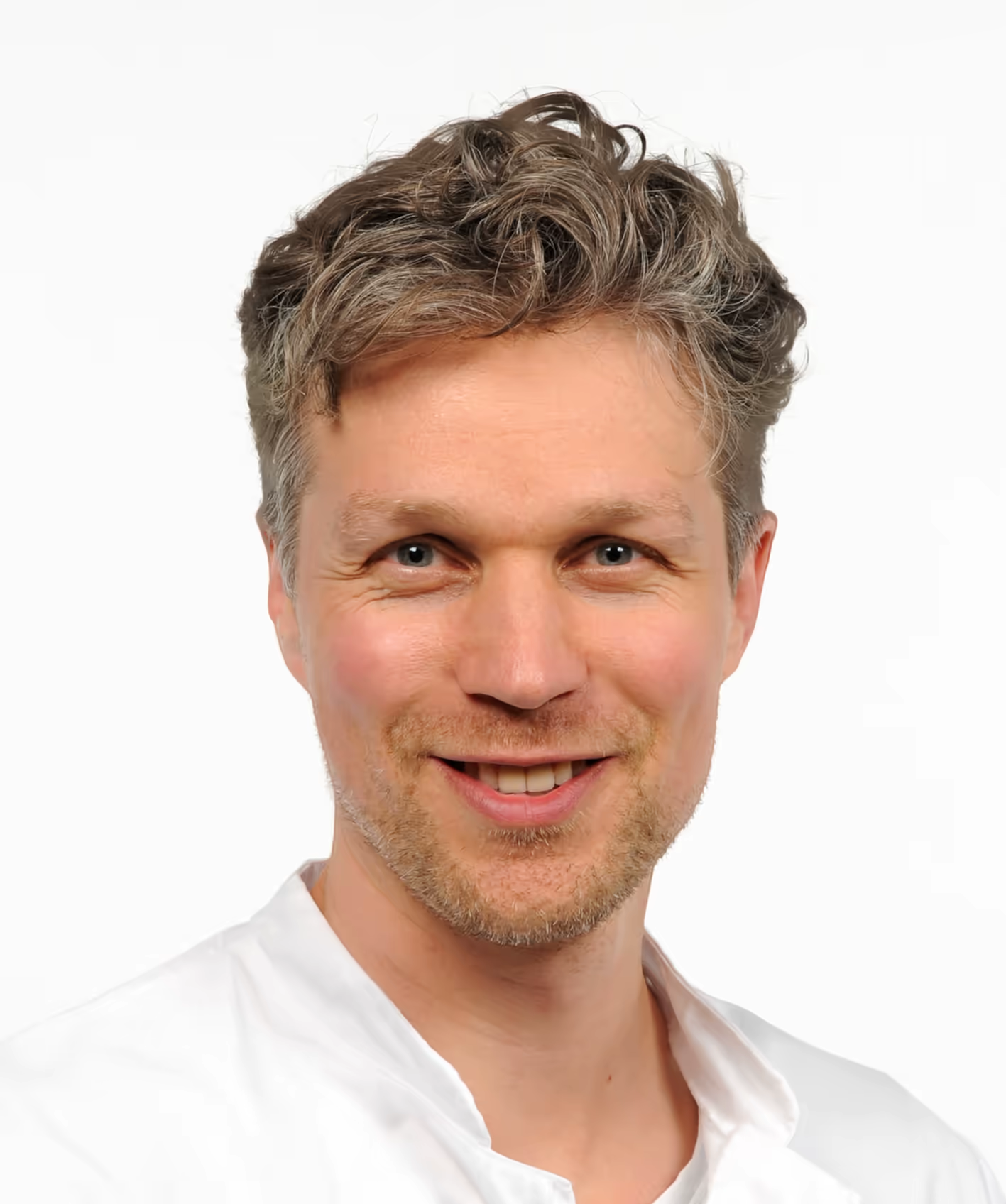
Daniel is a physicist, imaging scientist, and clinical radiologist
with a dedicated focus on machine learning and magnetic resonance
imaging. After studying physics at RWTH Aachen University and
Imperial College in London, he continued to satisfy his thirst for
knowledge by studying medicine at RWTH Aachen University. In 2013,
he completed his MD thesis on the compatibility of positron
emission tomography and magnetic resonance imaging and joined the
Department of Diagnostic and Interventional Radiology (University
Hospital Aachen) to become a board-certified clinical radiologist
in 2019. Besides his clinical work, he pursued his research
interests in machine learning as a fellow at the Institute of
Imaging and Computer Vision (RWTH Aachen University) for two years
before returning to the clinic where he currently leads the
interdisciplinary research group “AI in Medical Imaging”. His
research focuses on bringing machine learning-methods into
clinical practice and on bridging the gaps between research
possibilities and clinical applicability.His recent publications
are listed on
Google Scholar
and
Pubmed.
Senior Scientist
Sven Nebelung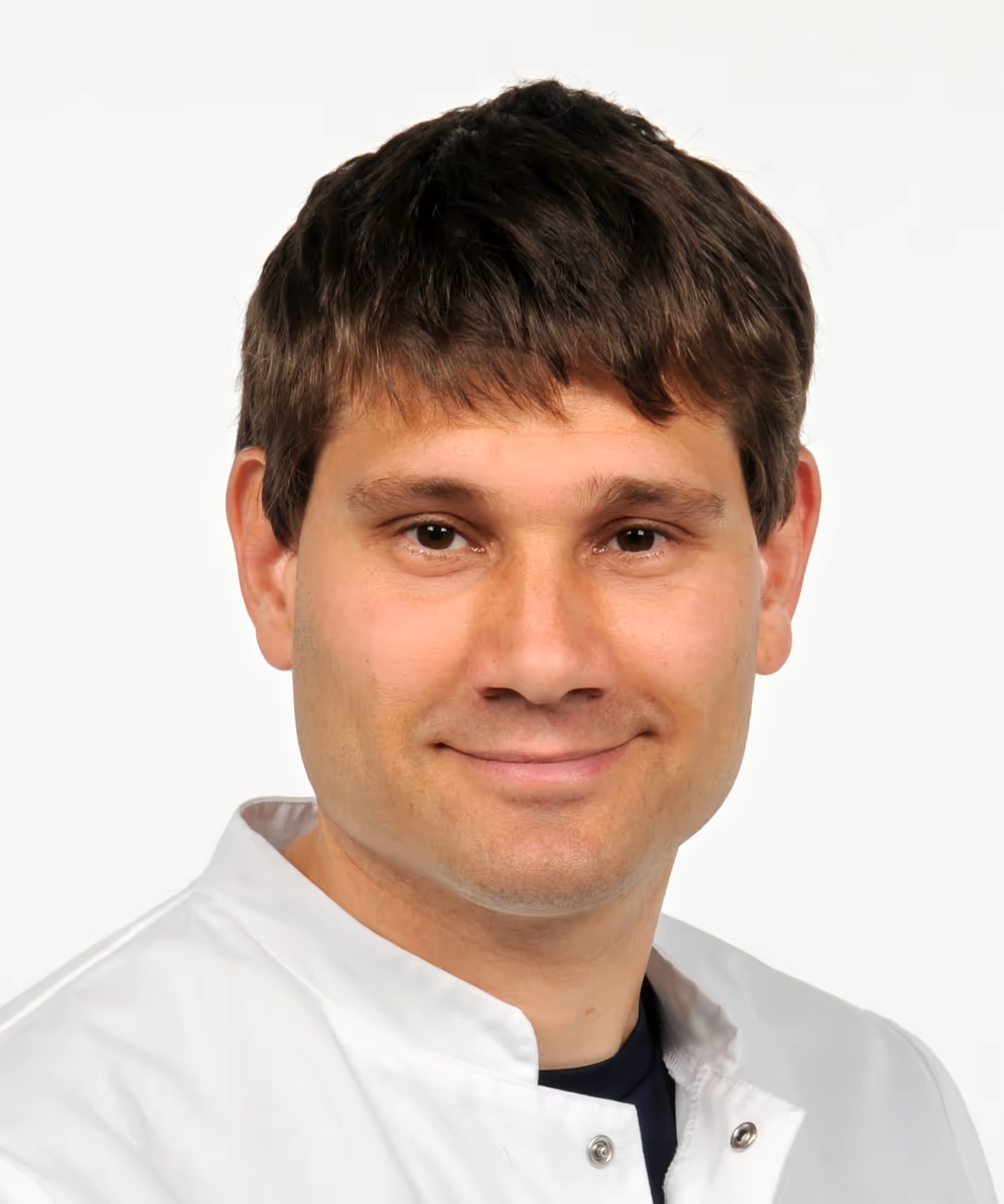
Sven is a clinical radiologist and imaging scientist focusing on
clinically motivated imaging research that aims to refine image
acquisition and post-processing methodologies in close
collaboration with clinicians, clinical scientists, engineers,
physicists, and imaging scientists. After studying medicine at
RWTH Aachen University, he completed his MD thesis on cartilage
tissue engineering. He joined the Department of Orthopedics
(University Hospital Aachen) to receive orthopedic training during
the surgical common trunk. After undertaking research at the
Institute of Anatomy (RWTH Aachen University) in 2015, he entered
Radiology specialist training at the Department of Diagnostic and
Interventional Radiology (University Hospital Aachen). After
completing a research stay at the Department of Diagnostic and
Interventional Radiology (University Hospital Düsseldorf) from
2019 to 2021, he moved back to Aachen to lead the group. In 2022,
he was board-certified as a radiologist and has been working as an
attending physician I the Department of Diagnostic and
Interventional Radiology (University Hospital Aachen) ever since,
focusing his clinical work on MRI and musculoskeletal pathologies.
His research is generously funded by the German Research
Association (DFG) and funds from RWTH Aachen University. His
recent publications are listed on Google Scholar
and Pubmed. He also regularly reviews manuscripts for medical, technical,
and interdisciplinary scientific journals.
Research Coordinator
Vera Winter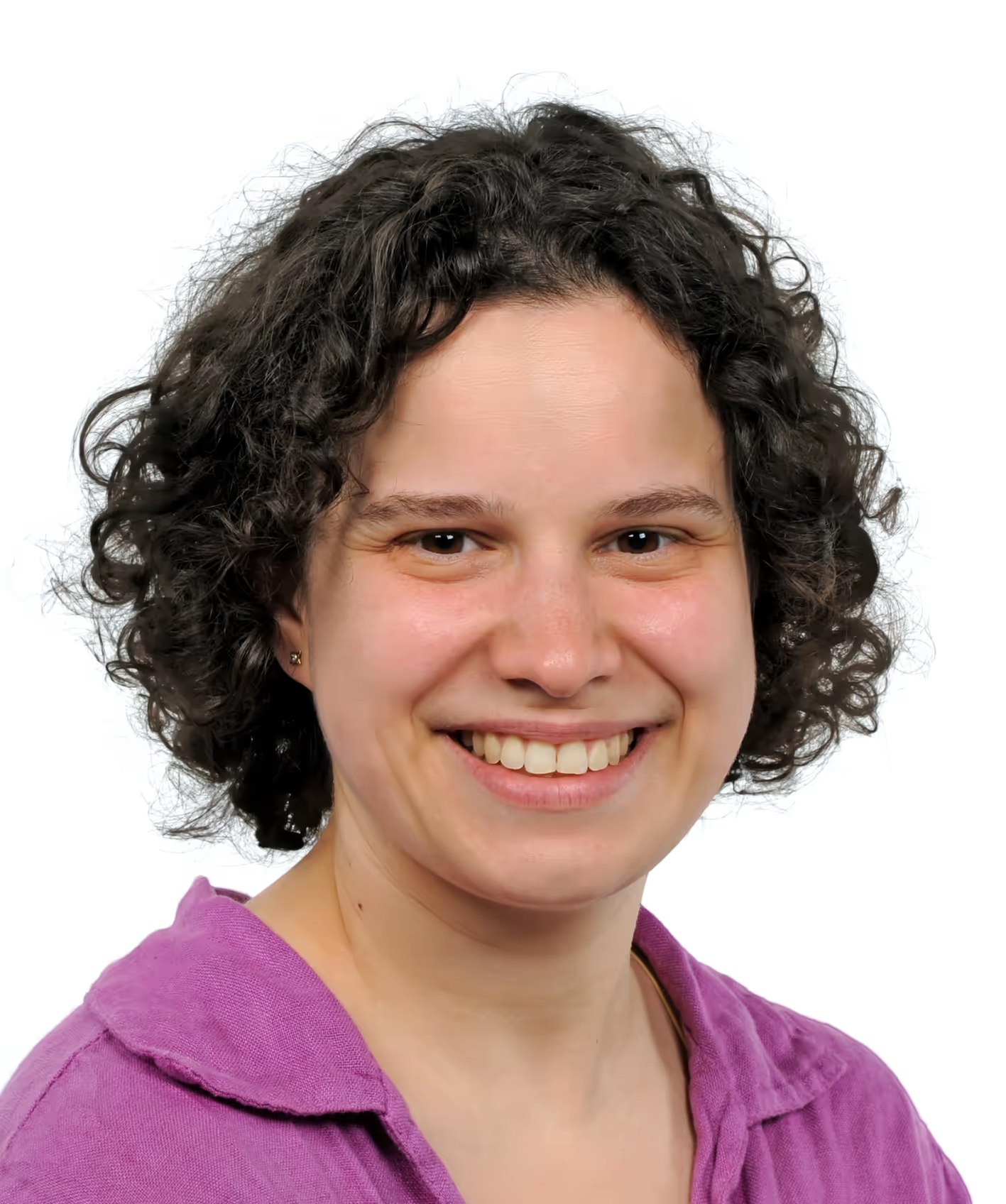
Vera joined the team in January 2024 as research coordinator. She
has a vast experience in the field of research funding and project
management and is passionate about supporting researchers so they
can focus on the science. Before joining our team she was in
charge of EU funded research projects, in particular European
Research Council (ERC), at RWTH Aachen University and worked in
project and stakeholder management at the European Spallation
Source in Lund, Sweden. Vera has studied European Studies,
International Relations and Research Management in Maastricht,
Braga, Malmö and Speyer.
PhD Students
Debora Jutz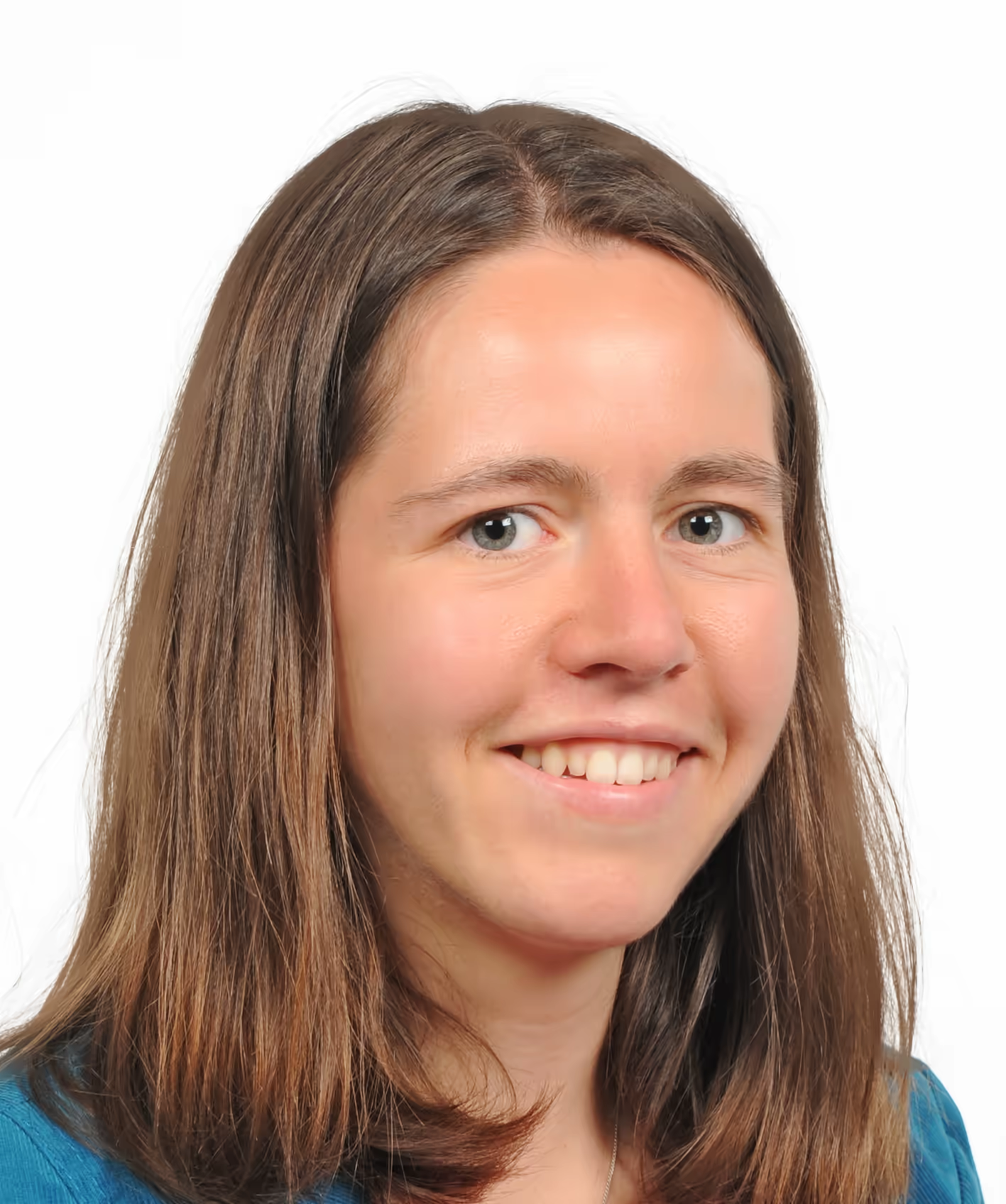
Debora is a medical computer scientist focusing on machine
learning classifying breast magnetic resonance images. She studied
medical computer science at University Heidelberg and Heilbronn
University for the bachelors degree. She continued her academic
journey in Tübingen where she worked as a research assistant in
2022, focusing on privacy-preserving machine learning techniques.
This role allowed her to deepen her expertise in safeguarding
sensitive data during model training and inference. Debora
completed her M.Sc. in medical computer science from the
University of Tübingen in 2023, specializing in security. Her
master's thesis focused on implementing inference on a
privacy-preserving Convolutional Neural Network (CNN) using secure
three-party computation.
Mahta Khoobi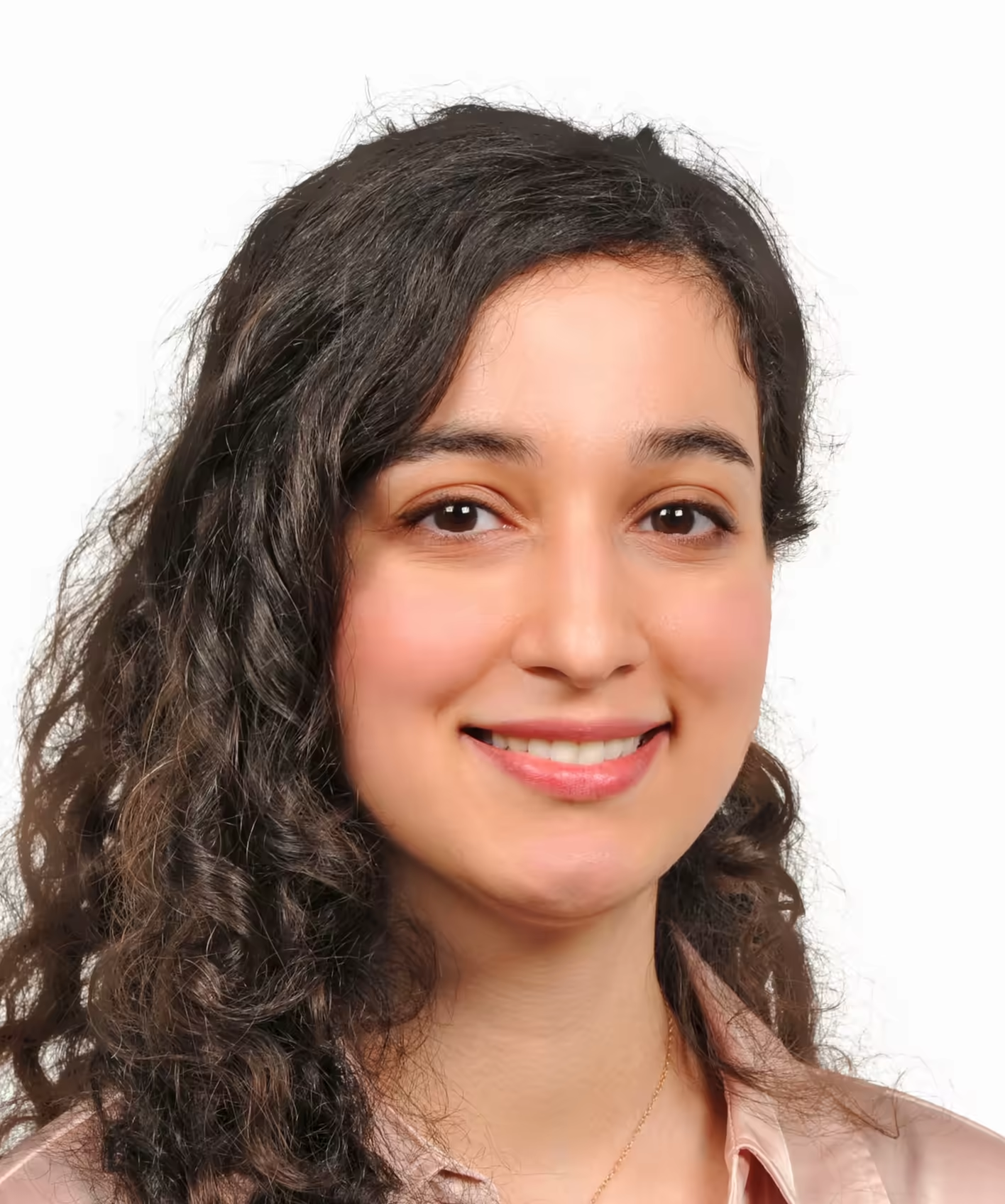
Mahta is a doctoral student at Uniklinik RWTH Aachen, delving into
Machine Learning and Musculoskeletal Imaging since January 2024.
She's on a mission to create user-friendly interfaces for medical
experts, integrating AI models seamlessly while keeping them
explainable in medical contexts. Leveraging open source platforms,
she's optimizing user interaction for efficient AI integration
into clinical practice. Before her doctoral studies, Mahta earned
an M.Sc. in Software Systems Engineering from RWTH Aachen and a
B.Sc. in Computer Engineering from Tehran, Iran. With industrial
experience in backend and frontend development, she's worked on
various projects, including financial data services and banking
web apps. Mahta's research interests range from software
engineering for machine learning to user interface design in
medical imaging platforms and MLOps. Outside work, she enjoys
fitness, painting, travel, and continuous learning.
Hanna Kreutzer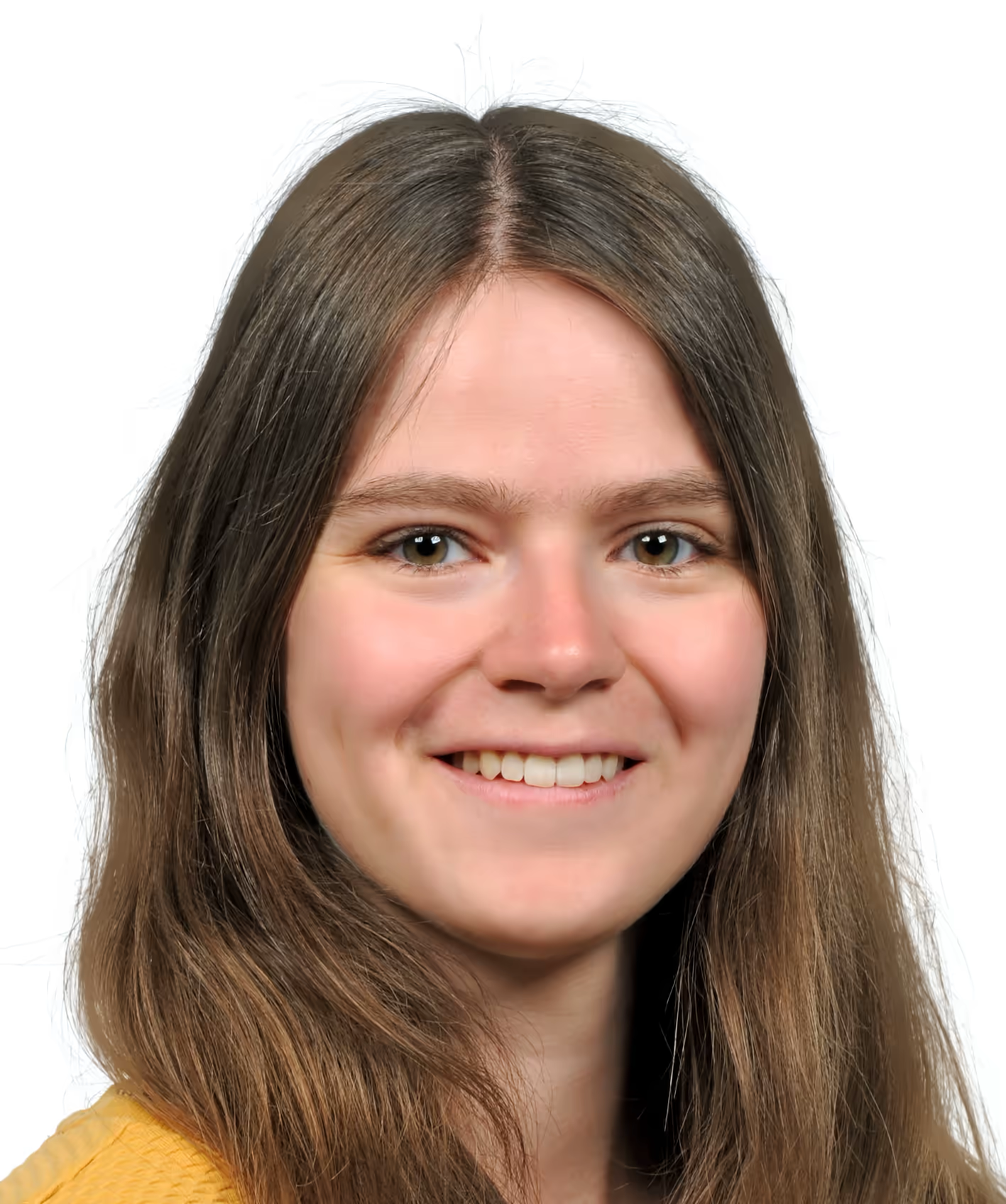
Hanna completed her Bachelor’s in Biotechnology at RWTH and wrote
her thesis on pharmacokinetical modeling. She then decided to
combine her interest in medicine and technology by switching to
Biomedical Engineering for her master’s. During a research
internship on MRI image reconstruction at the Montreal
Neurological Institute, she discovered her love for medical
imaging and everything data-related. Therefore, she further
explored the field afterwards by writing her master’s thesis at
Forschungszentrum Jülich on the topic of fMRI and qMRI image
analysis. Now, she’s excited to keep learning about AI and how it
can be leveraged in the clinical context.
Patrick Wienholt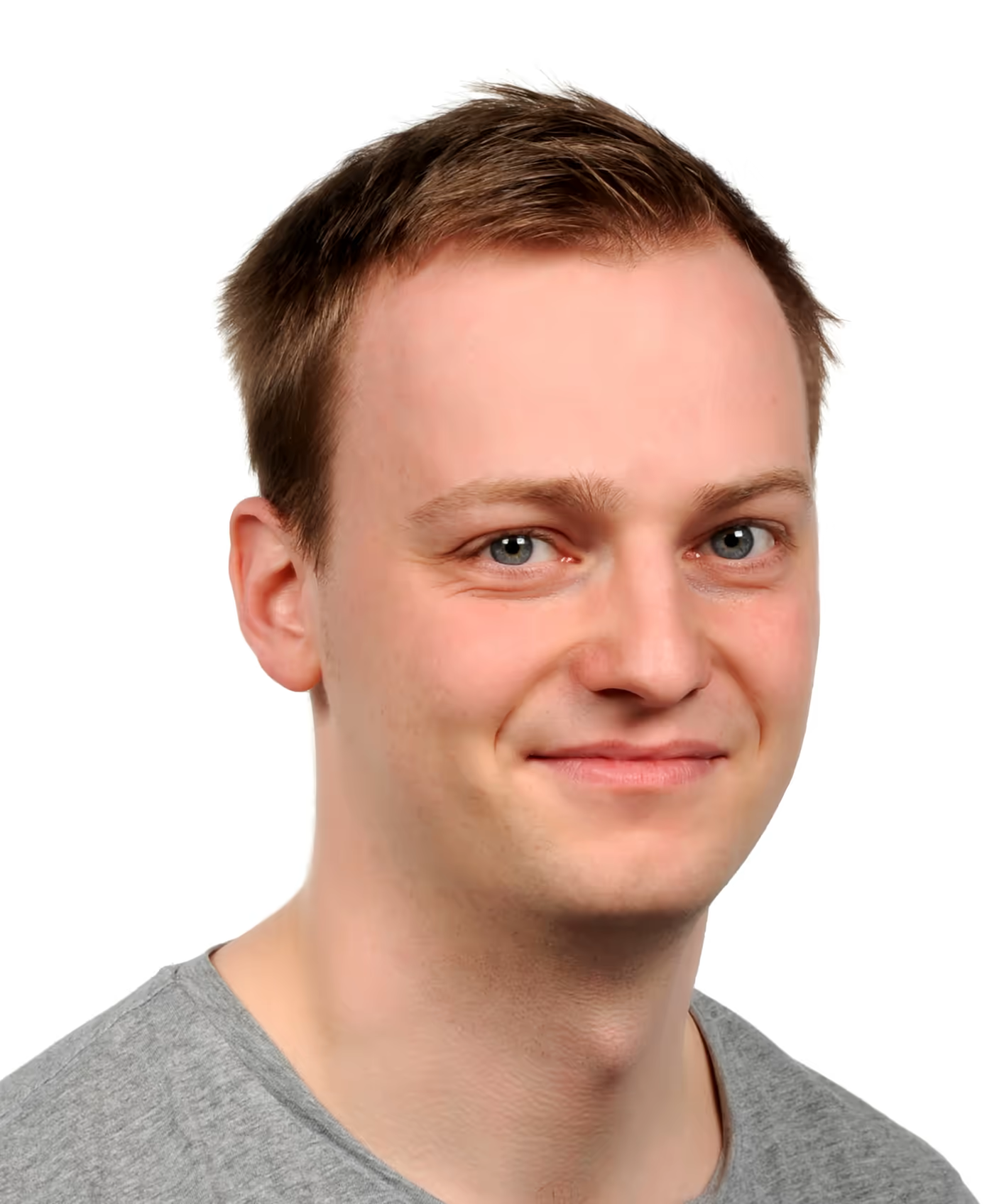
Patrick is a PhD (Dr. rer. medic.) candidate and researcher. He
has studied computer science and received his bachelor's and
master's degrees from RWTH Aachen University. During his studies,
he focused on machine learning with a special emphasis on computer
vision. Since the beginning he took lectures with a focus on
medicine and medical engineering. In his research, he uses his
expertise to push medical deep learning research beyond the
current state of the art.
Roman Vuskov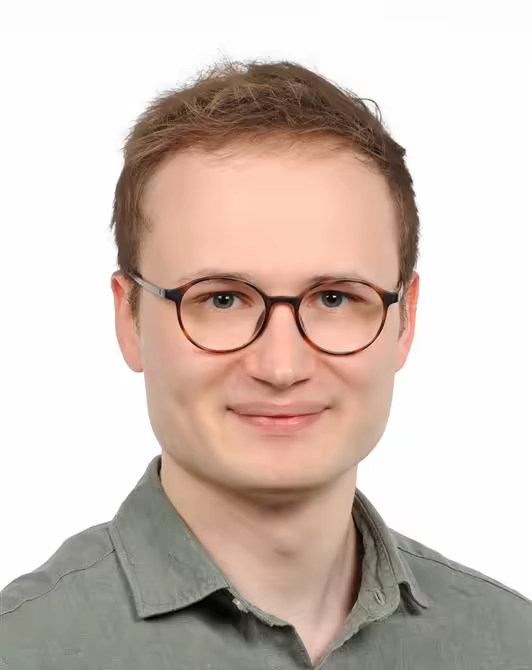
Roman is a passionate PhD Student (Dr. rer. medic) blending his
academic foundation in computer science with a keen interest in
medical AI. Having completed both his master's and bachelor's
degrees at RWTHS Aachen, he has experience in machine learning,
data science, and high-performance computing. His academic journey
has been driven by a fascination with expanding the
problem-solving capabilities of artificial computational systems
and extracting valuable insights from challenging datasets.
Presently, he collaborates closely with medical experts,
leveraging established deep-learning techniques to unlock new
clinical insights while conducting research into novel
deep-learning methods for the medical domain.
Simon Westfechtel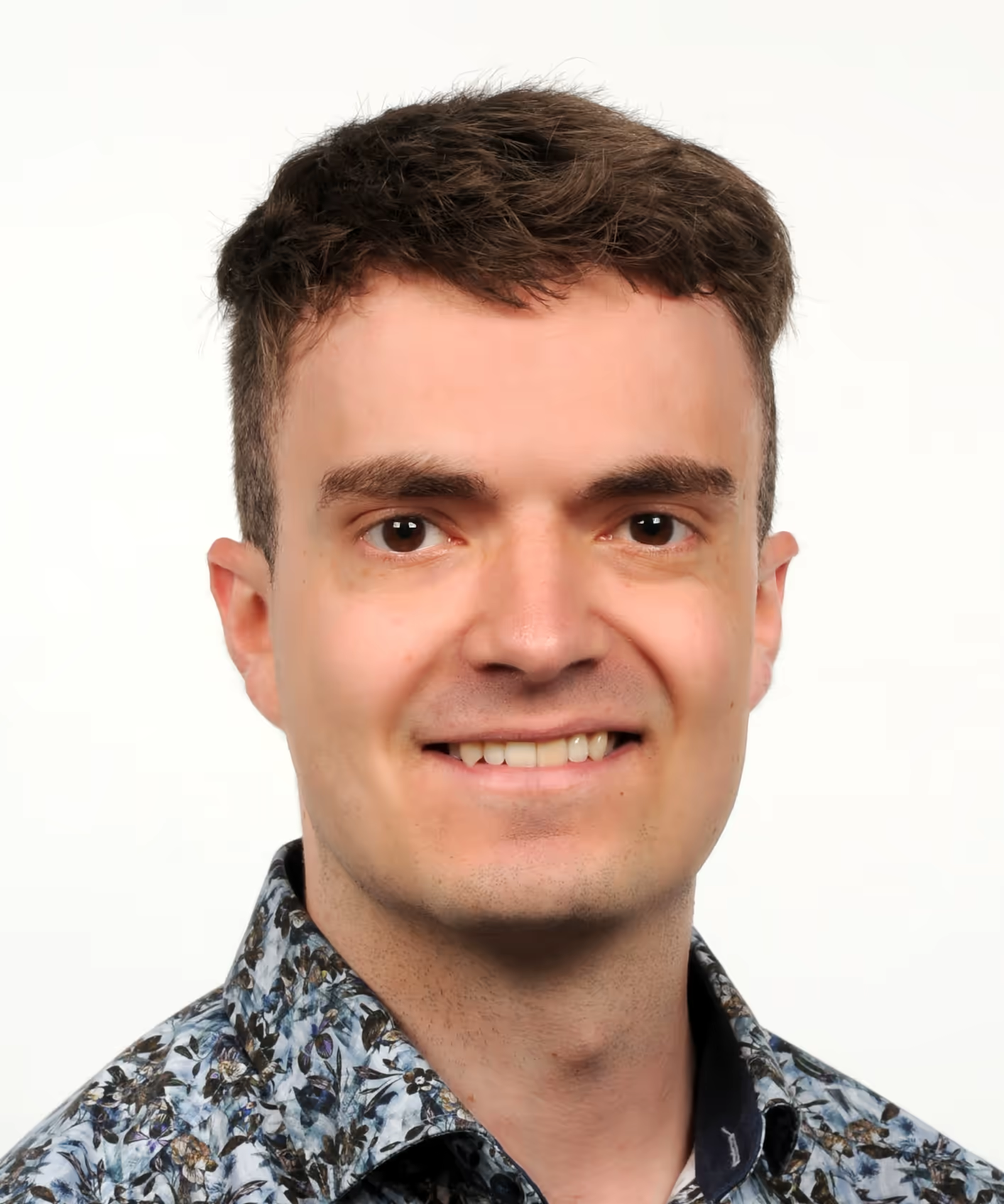
Simon studied Computational Social Systems at RWTH Aachen for his
Master's degree and joined the group in 2021 as a student
researcher. After completing his studies, he became a full-time
PhD student and research fellow in 2023. His work is focused on
developing novel methods for anatomical landmark detection in 3D
magnetic resonance imaging and building AI-aided diagnostic tools
for clinical practice.
Postdoctoral Researchers
Alexander Hermans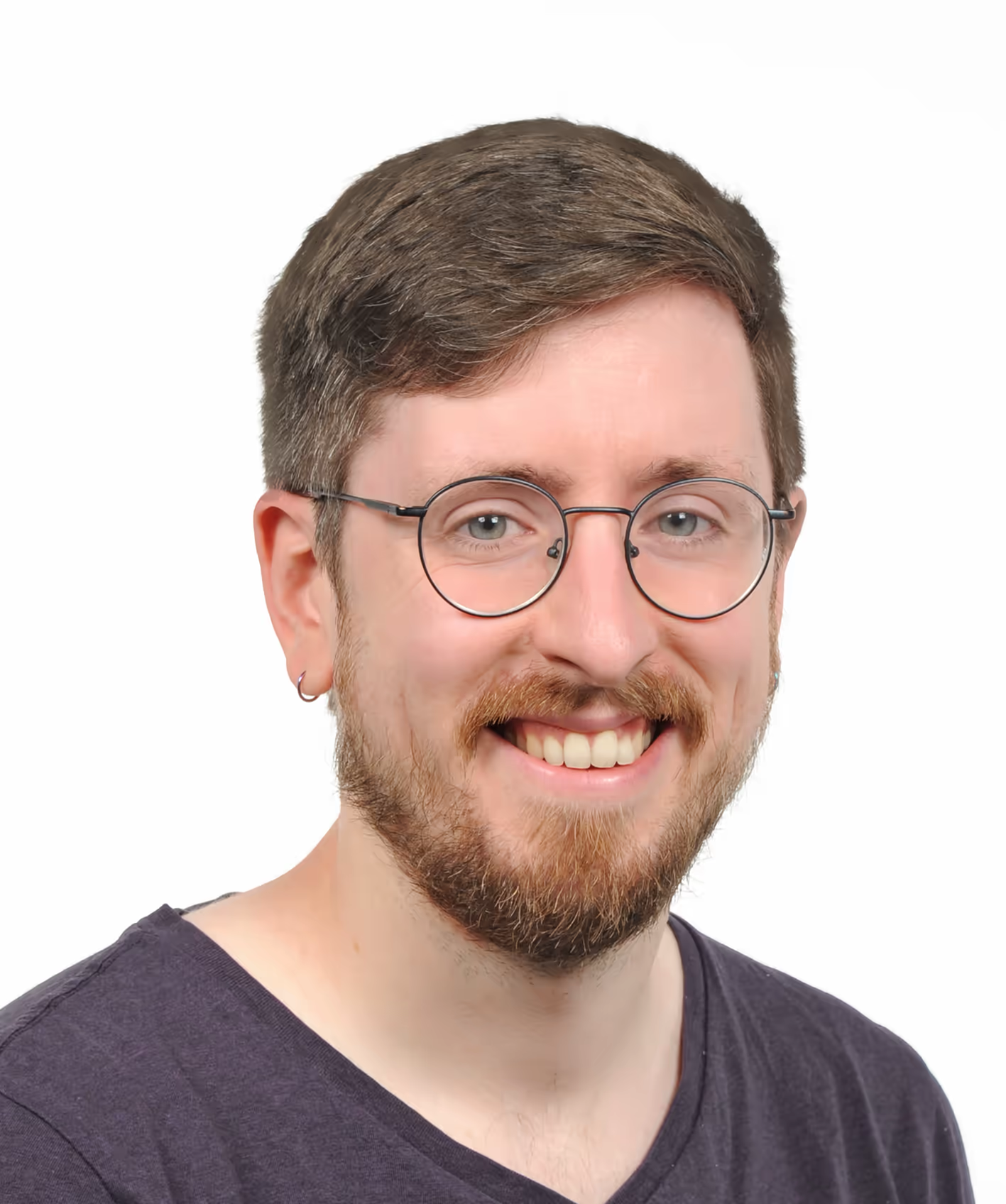
Alexander Hermans holds bachelor, master and PhD degrees in
computer science from RWTH Aachen University. During his PhD at
the Computer Vision group he worked on deep learning based
approaches for computer vision with a strong focus on real-world
robotics applications. He currently serves as a postdoctoral
researcher in the Computer Vision group at RWTH Aachen University,
while also contributing to the Machine Learning and
Musculoskeletal Imaging group at the university hospital. His work
focuses on the intersection of computer vision and practical
applications in robotics as well as medical imaging.
Dennis Eschweiler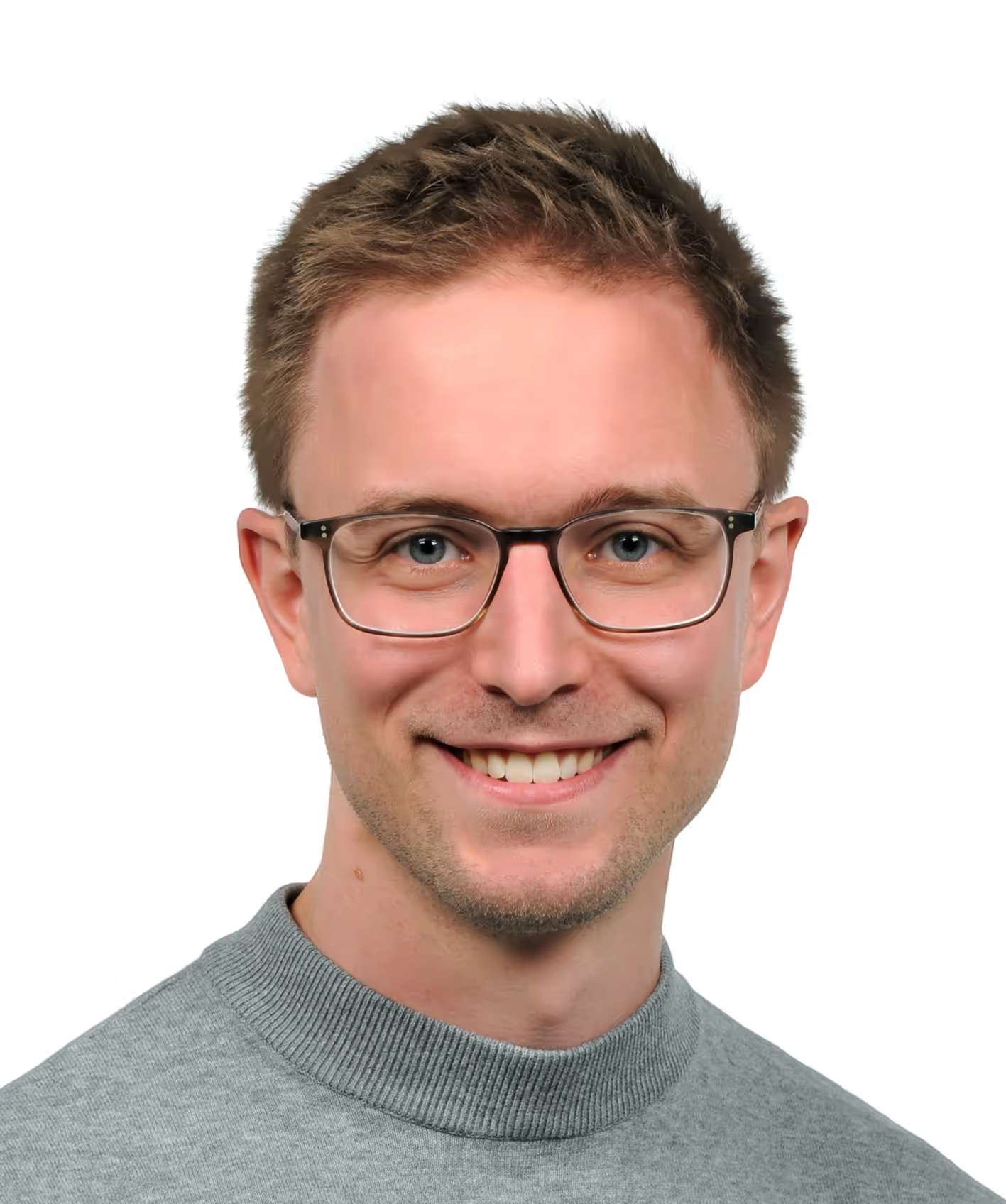
Dennis Eschweiler is a research scientist at the Machine Learning
and Musculoskeletal Imaging group at the RWTH University Hospital.
He received bachelor's and master's degrees in electrical
engineering from RWTH Aachen University in 2015 and 2018,
respectively. During his PhD at the Institute of Imaging and
Computer Vision at RWTH Aachen University, he worked on deep
learning-based approaches for segmentation and generative models
for 3D biomedical image data. He joined the group in 2024 and is
involved in various projects with the primary goal of bringing
deep learning-based approaches into clinical practice.
Firas Khader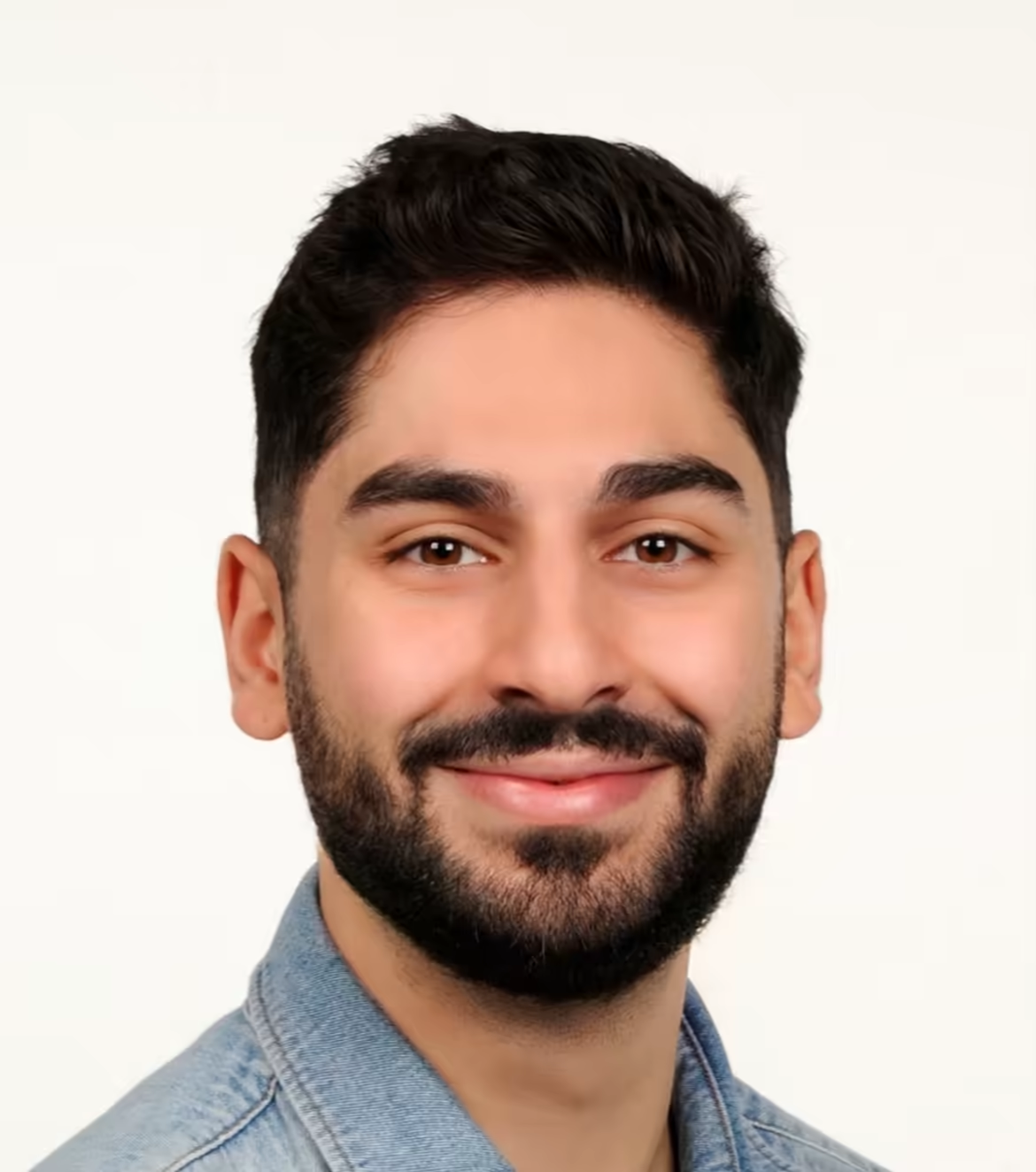
Firas is a Postdoc with a focus on applying machine learning
techniques to medical data. Prior to joining the group in 2020 he
received his bachelor’s degree in Electrical Engineering at
Hamburg University of Technology and his master’s degree at RWTH
Aachen University. In his master thesis he conducted research on
deep learning-based behaviour analysis that was followed up by an
internship as a machine learning-engineer in the industry where he
incorporated MRI knee segmentation algorithms into the workflow of
clinical radiologists. During his PhD, his main focus was on
analysing multimodal medical data (radiology & pathology) using
deep learning, as well as working on generative models for medical
imaging. His current focus is on exploring the capabilities of
large-language models on medical data.
Gustav Müller-Franzes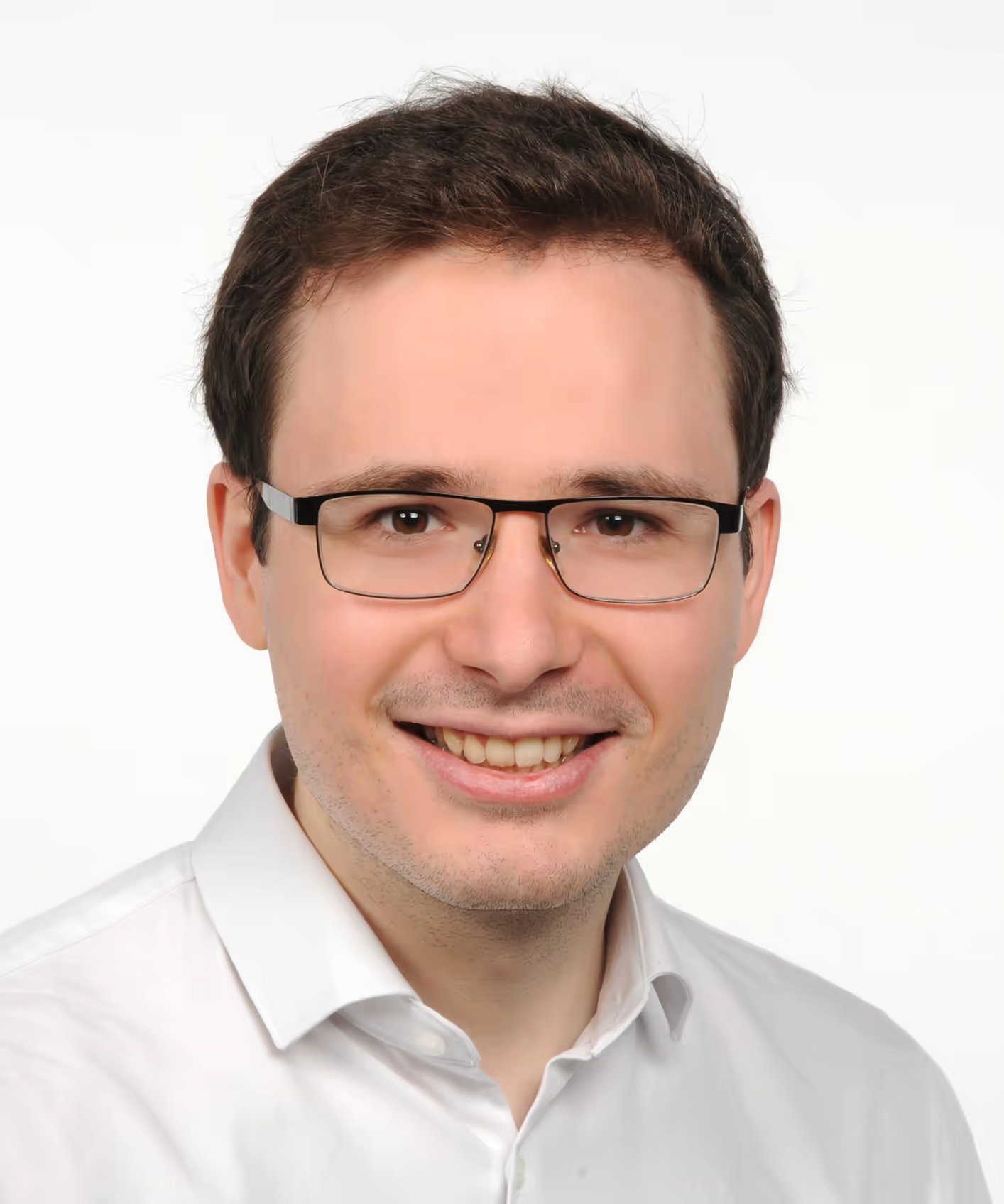
Gustav studied electrical engineering at RWTH Aachen University.
He developed deep learning methods for the classification of
breast cancer when pursuing his bachelor thesis at the Institute
of Imaging and Computer Vision (RWTH Aachen University). Following
that, he investigated the effects of inter-rater segmentation
variance on radiomics features during his master thesis. He joined
the team in 2020 and is now a PhD candidate involved in several
projects with the primary goal to establish and validate deep
learning methods in clinical practice. Currently, he is working on
machine learning-based optimization strategies in breast cancer
screening, joint MRI post processing, and other aspects of
medicine.
Soroosh Tayebi Arasteh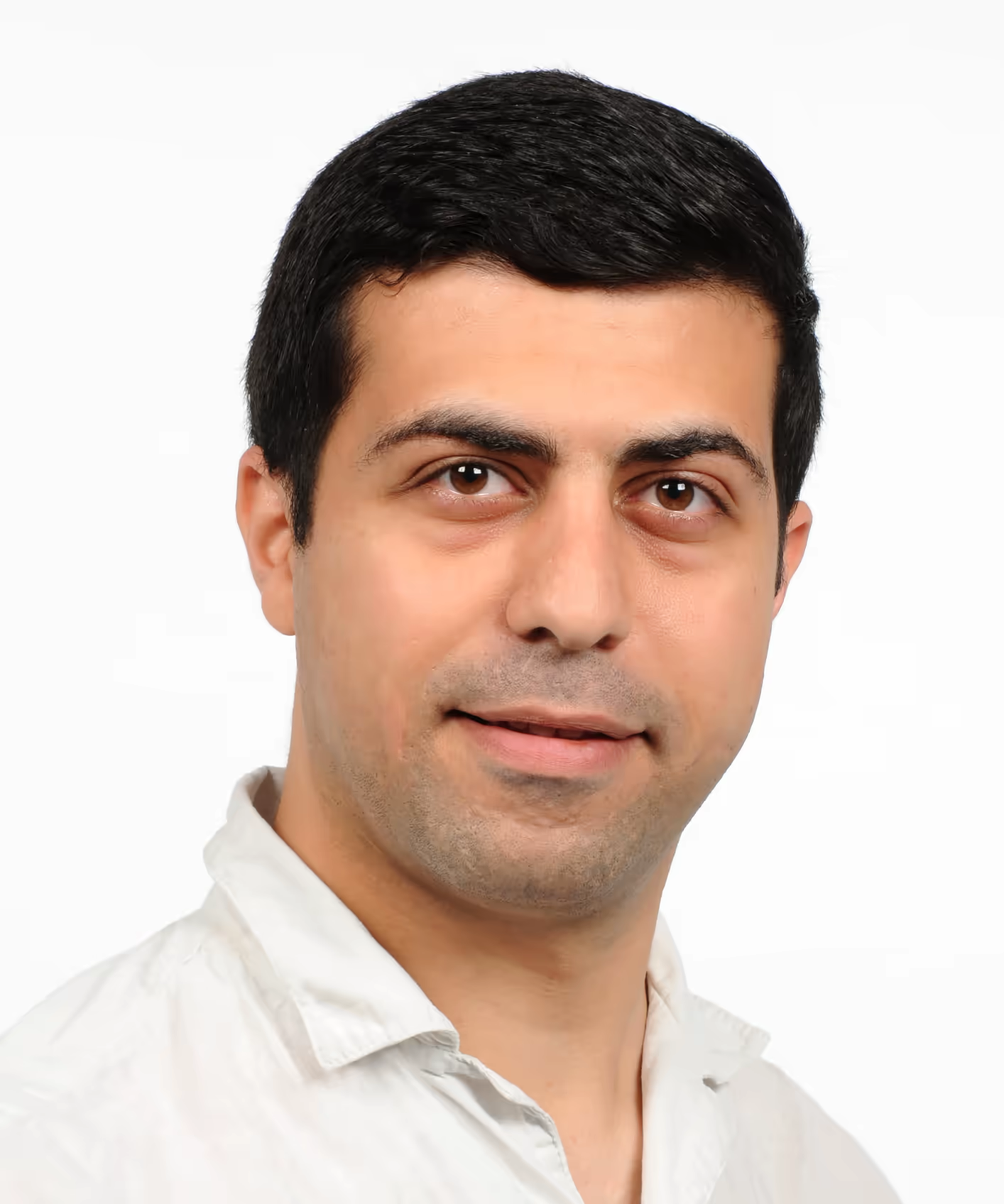
Soroosh is an AI scientist and electrical & computer engineer.
He completed his M.Sc. in signal processing and communications
engineering at the University of Erlangen-Nuremberg (FAU). Keen to
delve deeper into research and innovation, Soroosh embarked on his
master's thesis at Harvard Medical School. He joined the group in
02/2022 for a PhD in AI in Medical Image Processing from RWTH
Aachen University. Currently, he is a postdoctoral researcher at
the group, working on multiple projects such as privacy-preserving
medical deep learning, generative AI, and multimodal AI. For a
more detailed insight, visit his personal website
Here.
Tianyu Han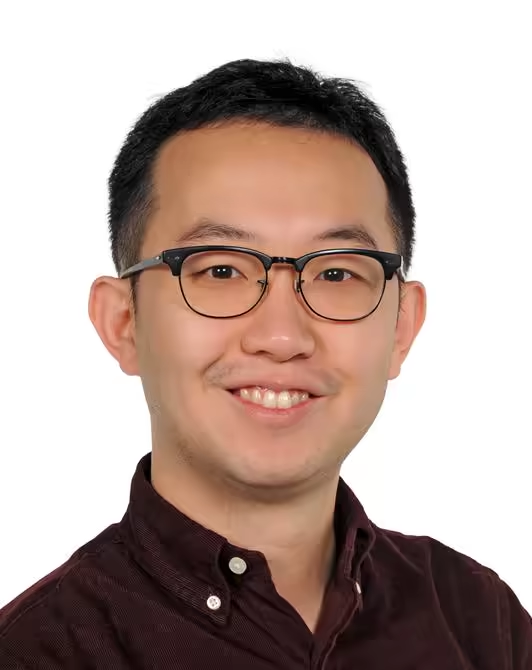
Dr. Tianyu Han is a postdoc researcher at the University Hospital
RWTH Aachen's Department of Diagnostic and Interventional
Radiology. With a PhD in Physics from RWTH Aachen University, his
doctoral study explored generative modeling for medical image
analysis, resulting in multiple high-impact publications in Nature
Machine Intelligence, Nature Communications, Radiology, and
Science Advances. Since completing his PhD, Dr. Han has extended
his research to developing and deploying advanced large language
models (LLMs) for medical applications. His notable contributions
include the creation of MedAlpaca, an open-source medical LLM, and
the compilation of Medical Meadow, a substantial medical dataset
designed for LLM training. His research has demonstrated the
practical utility of multimodal LLMs in clinical settings,
contributing to their adoption for general medical image
interpretation. Dr. Han’s work has also led to significant
advancements in using adversarially trained models for pathology
detection and the anonymous sharing of medical data through
generative models. His innovative methodologies have not only
enhanced diagnostic accuracies but also facilitated the
understanding of radiological confounders on an individual level.